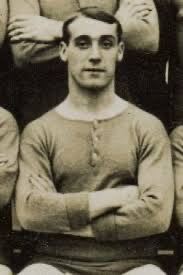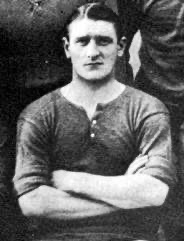The First Season We Met - Fulham
- debscoady
- Feb 3, 2023
- 2 min read

Despite being close neighbours, games between Chelsea and Fulham are not as numerous as one would think. Fulham certainly are much older than Chelsea, being formed as early as 1879, and are in fact the oldest professional football club in London. Playing under the name of St Andrews Church Sunday School F.C. they were largely made up of parishioners who were allegedly more adept at cricket. They played home games at numerous locations, the first one being ‘The Mud Pond’ on Star Road, Fulham before moving to Craven Cottage in 1896.
Success in the Southern League led to Fulham being elected to Division 2 of the Football League in 1907. That year saw Chelsea begin their first campaign in Division 1 but they struggled to make any sort of impact and three years later they were relegated back to Division 2, which is where the first encounter between the two teams occurred.

Chelsea’s attempt at an instant return to the elite had looked promising and they occupied 4th place in the table when they headed to Craven Cottage on 3rd December 1910. Fulham, on the other hand stood in mid-table, largely built on good home form having won five of the six games played thus far. The 35,000 gate saw a keenly contested game settled in the 27th minute when Jim Smith scored for Fulham. Chelsea did have the opportunity to earn a point when they were awarded a penalty, but Bob Whittingham hit his spot-kick over the Fulham bar. Chelsea headed back down the Fulham Road with tail between their legs whereas the home side claimed the bragging rights.
When the two sides reconvened for the return fixture at Stamford Bridge on 8th April 1911 the signs indicated that Chelsea’s promotion drive was still on track. They occupied 2nd place, just three points behind leaders, Bolton Wanderers but with three games in hand. They were also a point ahead of West Bromwich Albion having played a game less. Home form kept Fulham in mid-table, for away from Craven Cottage they had struggled for points.
An attendance of 45,000 was at Stamford Bridge for what turned out to be a feisty affair.
William Bridgeman had given Chelsea the lead in the 12th minute and the home supporters had many a nerve shredding moment until Bob Whittingham made amends for his penalty miss at Craven Cottage in December by scoring a second goal for Chelsea and two previous points.
William Bridgeman and Bob Whittingham
It all came to a rather ignominious end as Chelsea, looking absolute certainties for promotion contrived to lose four of their last five matches and miss out by finishing 2 points behind runners-up, Bolton Wanderers.
By Paul Waterhouse, Bygone Chelsea 1905-99








Comments